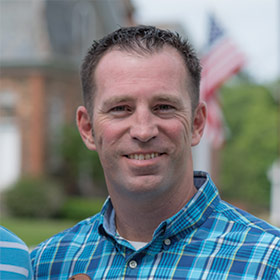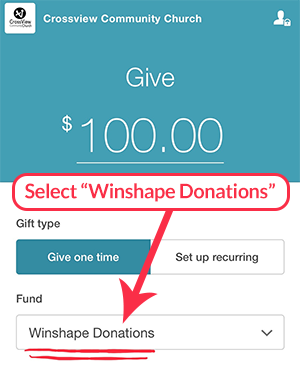 In a recent post I identified four specific ways a job at Chick-fil-A builds character and instills positive values in the lives of teenagers and young adults:
In a recent post I identified four specific ways a job at Chick-fil-A builds character and instills positive values in the lives of teenagers and young adults:
- It helps them develop a healthy work ethic.
- It teaches them to cultivate resilience; this doesn’t come automatically in today’s culture.
- It shows them the importance of developing a seasonal growth mindset and becoming a life-long learner.
- It requires them to go “the extra mile” and deliver world-class customer service.
In today’s post, we will discuss what it means to become a life-long learner. This may seem very straightforward, and it is. However, it is often neglected in our culture. One of the ways I see this neglected the most is in how arrogant young people have become. While every generation has had a chip on their shoulder to some degree (most of us can remember being eighteen and thinking we knew everything!), our modern generations have taken it to a whole new level. Now, it’s not just that they think they know more than their parents; they think they know better than every adult.
We see this all the time in our culture today: not just in the workplace but in most public spaces. Just go sit in a coffee shop for a few minutes and listen to the conversations around you and you’re bound to see it if you don’t already. It’s even dominating our headlines—from a sixteen-year-old in Sweden who is suddenly an “expert” on climate change and knows how to solve all the world’s problems, to a group of students in Florida who are sudden experts on violence and gun control after surviving a school shooting. I’m in no way trying to make political statements or minimize a tragic incident, but the key point I am trying to illustrate is that many kids today have an experience and suddenly think they have the answers and everything is black and white, while life experience often teaches us that the issues our nation faces today are much more complex.
While it is true that an eighteen-year-old today may know more information than an eighteen-year-old who lived fifty years ago (thanks to the Internet and the immediate availability of virtually all knowledge), they are markedly less mature. Kids today don’t need to be taught information as much as generations past, but they do need to be taught how to handle the information they already have. In particular, they need to be taught that maturity is an intentional process that takes place over the long haul; it is not instantaneous like searching the Internet or asking Siri.
As a parent, I want to teach my kids to be life-long learners who are always curious and self-aware that while they may know a lot of information, there is still a lot that they don’t know. Curiosity helps keep us humble, especially when it comes to relationships. It is so easy today to see a post on Facebook or receive a text from a friend and totally misinterpret it. Our minds can run wild, causing us to form wildly false assumptions about the people around us. We can assume someone believes a certain thing because they did a certain thing, or write someone off as having absolutely nothing in common with us simply because they belong to a different political party than we do. We can assume someone is mad at us over a text they sent, when they could really just be confused or need more information. We are now communicating more than ever, but understanding one another less and less. Curiosity helps us to get to know others, ask questions, understand where they are coming from. It helps us be slow to form judgments and jump to conclusions, and keeps us humble so we can re-learn the art of “agreeing to disagree” and still work well together and even maintain close relationships that bridge the gap of our disagreements.
Being a life-long learner is not just something I want for my children; I want it in my own life as well! I want to stay humble and curious as God continues to mature me and shape my character. None of us have arrived, but not all of us realize we haven’t arrived. Some of us view learning as a pinnacle: I’m going to learn for a period of time and then I’m done learning. However, I have found that learning is more of a cycle, and the growth that results takes place in the context of seasons. Just like in nature—where every spring there is new growth—there are things in our lives that we need to learn and other things we need to unlearn. Some of these things we must unlearn because they are toxic (we never should have learned them in the first place), while other things were just from a previous season and are no longer providing life; they are actually preventing us from learning new things. Just as winter comes and cuts things back for future growth, there is clutter we need to cut out of our lives. Some things need to fall to the ground and become nutrients for future growth. It’s not a pinnacle, but a growth cycle. Our personal growth is like the seasons; every spring is a new beginning.
One thing that is important to note is consuming information is not the same thing as actually learning. In our modern world, we are absolutely bombarded with information. There are so many things competing for our attention. Like a rock skipping across a pond, there are things we learn on a surface level without ever diving deep into them. This is fine for some things, but there are other things in our lives that we need to let sink in, to the point that they begin to shape the way we live our lives and the way we lead others.
Rather than trying to learn everything, all at once (which can lead to a fast and shallow form of learning), I recommend choosing a few things at a time so you can go deep. Recognize that growth will take time, and slow growth is okay. Wisdom takes a “long view” that looks more at the overall direction over how fast one is moving toward a destination. This will keep you from burning out so you can truly be a “life-long” learner who is always growing but doesn’t get overwhelmed trying to change ten different things in their lives, all at once.

Zach Thomas is an entrepreneur, Chick-fil-A franchisee, business/life coach, public speaker, blogger, and author of Leader Farming: Growing Leaders to Grow Your Business. His next book, Pioneer Parenting: A Guide for Raising Kids in Uncharted Territory, is expected to release in 2020. Download a free preview chapter at www.pioneerparenting.org/about.








